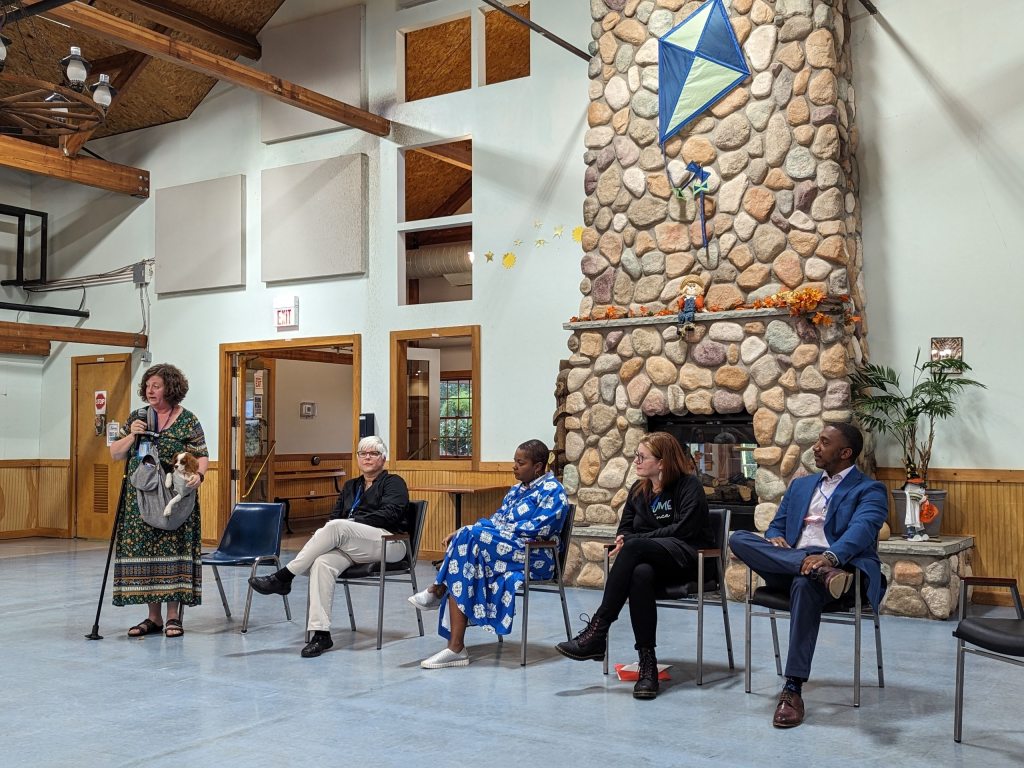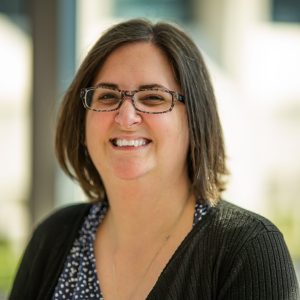
Out of all the events that I’ve attended post-op since my foot surgery in August, this one was not only the most accessible for me, but one that I took so much more out of than I had expected.
The Neurodiversity Network of WNY held a conference yesterday, spanning an entire five hours with talks from different professionals from around the local area, the state, and from other parts of the country. It was held at Cradle Beach in Angola, NY, which if you’re unfamiliar with the area like myself to some respect, it is a wonderful place to be. Cradle Beach was founded in 1888 as an organization to help support underprivileged youth from the City of Buffalo. Now, with its 66 acre campus right on Lake Erie, the fully accessible grounds are open to not only children from low-income families, but for children with disabilities, providing respite care and summer camps. If you want to learn more about Cradle Beach, click here!
Many of the talks focused on different aspects of the social model, as opposed to the medical model, in what has been perpetuating and fueling the culture of special education and how society views and treats individuals with disabilities for decades. Speakers, ranging from specialists to academics, from teachers to neurodivergent adults, spoke about the work that they do and their lived experiences. At the very end of the day, a panel was even held to answer questions at-large from pre-planned questions to questions from the audience. Which by the way, the audience was quite large! Over one hundred people had registered to attend, which all fit into what I would call a great hall in the Jim Kelly house on the camp grounds.
Besides the talks, there were sponsors there as well with stands giving out information on resources that they provide, which included Buffalo Hearing & Speech (my EI agency!), the New York Early Childhood Professional Development Institute, and HOPE of WNY (Domestic Violence Services for Individuals with Intellectual and Developmental Disabilities).
The main takeaway that I can summarize from this entire day would be that we, as professionals and people, should always presume competence when engaging with children and individuals with disabilities, and who may be neurodivergent. We automatically judge people by how they act, what they look like, and what’s said about them on a piece of paper. What I’ve learned when examining IFSPs and IEPs as I’ve worked in the field and gained experience, is that not only is it common for these documents to be written with such minimal information about the child, but that what’s on paper doesn’t accurately describe the child, the supports that they need, and the goals that the family wishes for them to achieve (or the teacher). It turns out that my early childhood generalist training from Dr. Mira Berkley has really influenced my behaviorist training! I always felt that when I was working solely within the ABA field that so many people forgot what the term “applied” meant in social sciences—it means you’re working with people! And this is no knock on ABA, but I look forward to the day when more people in the field remember that (check out The Bearded Behaviorist on Facebook who’s a huge proponent of this change).
We have crafted a society where systems don’t allow for certain members to not only access opportunities, but succeed in them. A theme that was starting to creep out was that higher education as it stands doesn’t properly address the needed support that neurodivergent and disabled college students need to succeed in their programs. The answer to that question became another question though, which was, “How do we best support faculty in adjusting to this?” It’s not like it’s an elephant in the room that isn’t being spoken about: teachers and faculty are overwhelmed with demands, and we are asking for more to be put on their plates. I personally believe that it takes but a mustard seed to start change, and I think that mustard seed is Universal Design for Learning, or UDL. It is a framework that we’ve spoken about before on here, but it CAN be done to change mindsets, teaching strategies, and physical access at the college and university level. If higher education faculty and staff are prepared to hear about UDL and make adaptations in the campus culture (and if we’re prepared to support THEM), then everyone will succeed.
